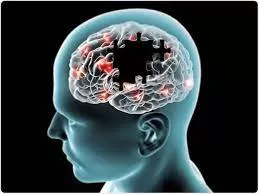Würzburg, Germany – In a groundbreaking study, researchers from Würzburg University Medicine have identified a promising new approach to enhancing vitamin B6 levels in cells. Vitamin B6, essential for brain metabolism, has been linked to various mental illnesses, including depression, memory loss, and dementia. Despite its critical role, merely increasing dietary intake of vitamin B6 has proven insufficient in preventing or treating brain function disorders. However, a recent discovery may pave the way for more effective treatments.
The research, published in the scientific journal eLife, reveals that inhibiting the intracellular degradation of vitamin B6 can significantly boost its levels in nerve cells, thereby improving learning and memory processes. The team, led by Professor Antje Gohla from the Department of Pharmacology and Toxicology at Julius-Maximilians-Universität Würzburg (JMU), includes participants from the Rudolf Virchow Center for Integrative and Translational Bioimaging at JMU, the Leibniz-Forschungsinstitut für Molekulare Pharmakologie-FMP Berlin, and the Institute for Clinical Neurobiology at Würzburg University Hospital.
Enzyme Blockade and Learning Enhancement
Professor Gohla explains, “In earlier studies, we demonstrated that genetically switching off the vitamin B6-degrading enzyme pyridoxal phosphatase in mice improves their spatial learning and memory capacity.” The current research aimed to determine if similar effects could be achieved pharmacologically. The team successfully identified a natural substance, 7,8-Dihydroxyflavone, that binds to and inhibits pyridoxal phosphatase, slowing down the degradation of vitamin B6.
“In our experiments, we found that this natural substance increases vitamin B6 levels in nerve cells involved in learning and memory processes,” Gohla added. This discovery not only enhances the understanding of mental disorders but also suggests a new therapeutic approach for treating brain disorders.
Implications for Drug Therapy
7,8-Dihydroxyflavone has been previously recognized for its potential to improve learning and memory in disease models of mental disorders. The new findings elucidate its mechanism as an inhibitor of pyridoxal phosphatase, offering deeper insights into its efficacy. This could lead to a better mechanistic understanding of mental disorders and provide a novel drug approach for brain health.
The identification of 7,8-Dihydroxyflavone as a pyridoxal phosphatase inhibitor marks a significant milestone, given the challenge of targeting this class of enzymes for drug development.
Future Prospects
While the discovery holds great promise, the journey from research to clinical application is still in its early stages. “It’s too early to say when people will benefit from this discovery,” cautions Marian Brenner, the study’s first author. However, the potential use of vitamin B6 in combination with pyridoxal phosphatase inhibitors for treating mental disorders and neurodegenerative diseases is highly promising.
The next step for Gohla and her team is to develop more precise and effective inhibitors of pyridoxal phosphatase. These inhibitors will be crucial in testing whether increasing cellular vitamin B6 levels can help treat mental or neurodegenerative diseases.
The research opens new avenues for understanding and treating brain function disorders, offering hope for improved therapies in the future.












